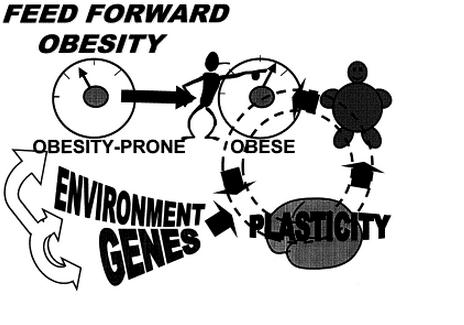Are You Genetically Predisposed To Obesity?

Obesity refers to having abnormal or excessive fat than the average person of the same height and ethnic group. It is currently a global health concern with numbers rapidly escalating across both the developed world and ironically, also in third world countries. In the USA, 35% of all adults are currently obese. It is moreover, more common amongst women. What is more prevalent amongst males is being overweight. This said, the terms obesity or being overweight can converge very closely and be almost indistinguishable. The following are how medical experts manage to pigeonhole the two:
- An adult who has a BMI between 25 and 29.9 is considered overweight
- An adult who has a BMI of 30 or higher is considered obese.
Why is obesity a problem?
The impact on the public health care system is huge. People suffering from obesity have many more health problems and complications that their leaner counterparts. Obese people are more likely to suffer from arrange of illnesses including cancers, coronary diseases, diabetes type 2, strokes and hypertension. They are far more likely to die before reaching their life expectancy. Besides health problems, obesity also has social and economic impacts, adversely affecting the obese person. They may have lower chances of being employed, be discriminated against and suffer from mental health issues.
The Genetic Link

People often stereotype overweight or obese people as being greedy, often using derogative terms to refer to their eating habits and size. Luckily for some, scientists have recently turned their gaze towards genetics to determine whether some people carry a genetic predisposition to obesity. They have in fact, identified a number of important genes and studies have drawn significant conclusions. For some people, it is not simply about overeating and leading a sedentary life. However, the global obesity pandemic is not so much gene related as caused by changes in diet, society and economic development.
Some random genetic mutations on just one gene, known as monogenic mutations, have been linked to some cases of obesity. These monogenetic mutations results if forms of obesity that are rather rare. Some diseases such as Prader–Willi invariably cause obesity in the people who suffer from it.
The genes affected are linked to appetite control and satiety. When it comes to common obesity, studies have centered on analyzing specific points at which gene variations at a particular point may result in changes in the way the gene functions. These gene variations are known as single nucleotide polymorphism. Some DNA testing companies, such as easyDNA, specialize in providing genetic health tests which can assess the risk a person has of becoming obese.
Fat mass and obesity-associated (FTO) gene on chromosome 16
A variation on this gene, which was discovered back in 2007, has provided the link between genetics and obesity. The FTO gene is expressed in a part of the brain that control appetite – the hypothalamus. This becomes clear when one observes the typical tendency to binge and over-eat in obese people.
People with the FTO gene have a 30% higher chance of developing obesity. People who have a genetic predisposition to obesity are not to be victims of their genes. Carrying the obesity gene does not in fact mean that the person will become overweight or obese at any point in their life. Having a high genetic predisposition simply means that certain factors, such as leading an unhealthy lifestyle, could cause the person to become obese. The discovery of the FTO gene has spurred pharmaceutical companies to undertake new research to synthesis or discover new drugs that could help control weight or appetite efficiently in people with a predisposition to obesity or people who are already suffering from the condition.
Whether someone with a high predisposition to obesity actually develops the disease is contingent with the type of food they eat, their lifestyle, their activity, their job and a host of other factors. In fact, whether or not one becomes obese, even if they have the FTO gene etched in the DNA, depends more on lifestyle than on anything else. The genetic contribution is essentially rather small. People who eat healthily and sensibly and take exercise, do not become obese no matter whether genetically predisposed or not.
Resource
Karl M McDonald is a specialist writer, namely writing about genetics and DNA testing. The author does however, delve into a diversity of other topics including pregnancy, parenting and schooling. If you are interested to find out about what your body is genetically predisposed for click here